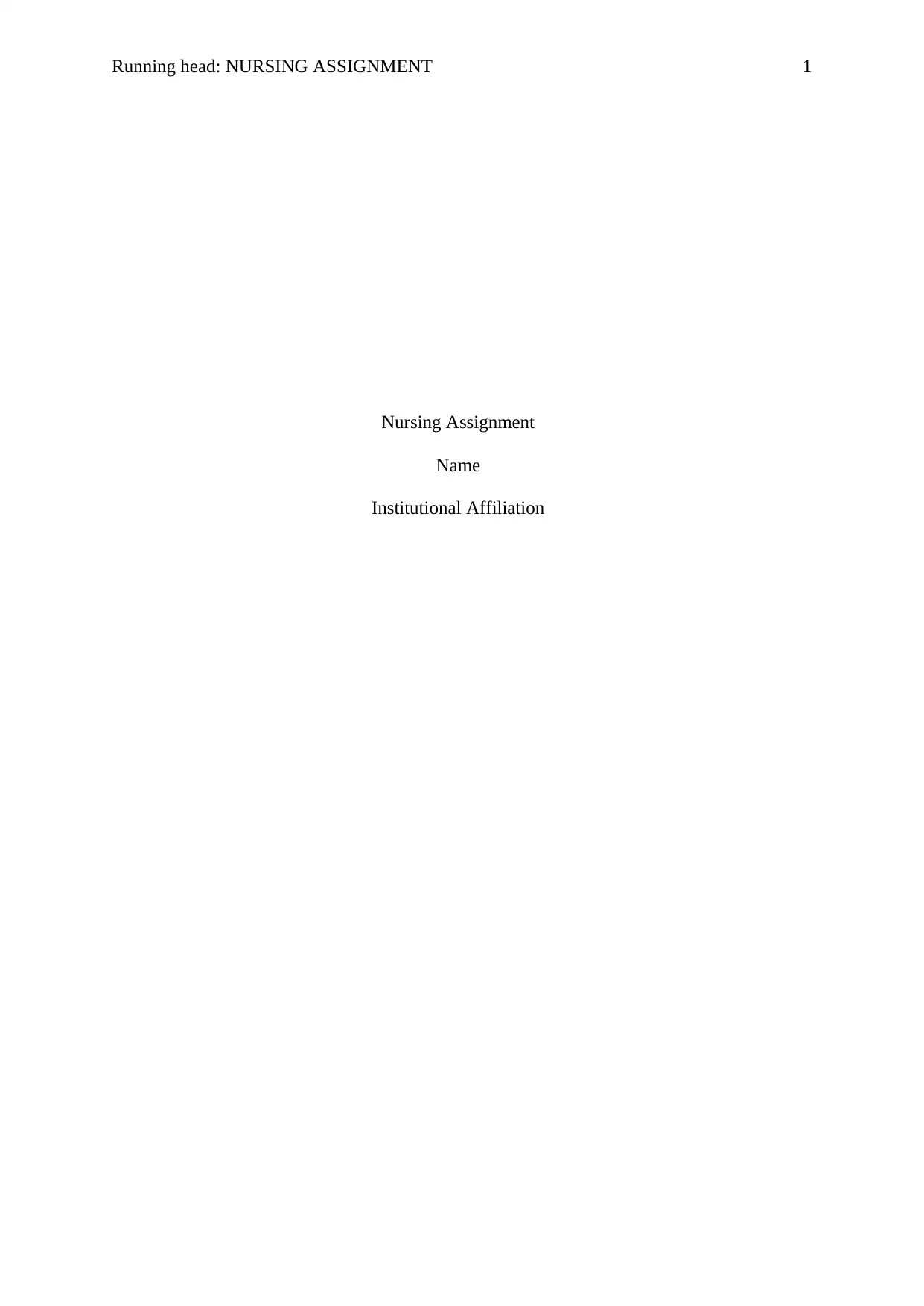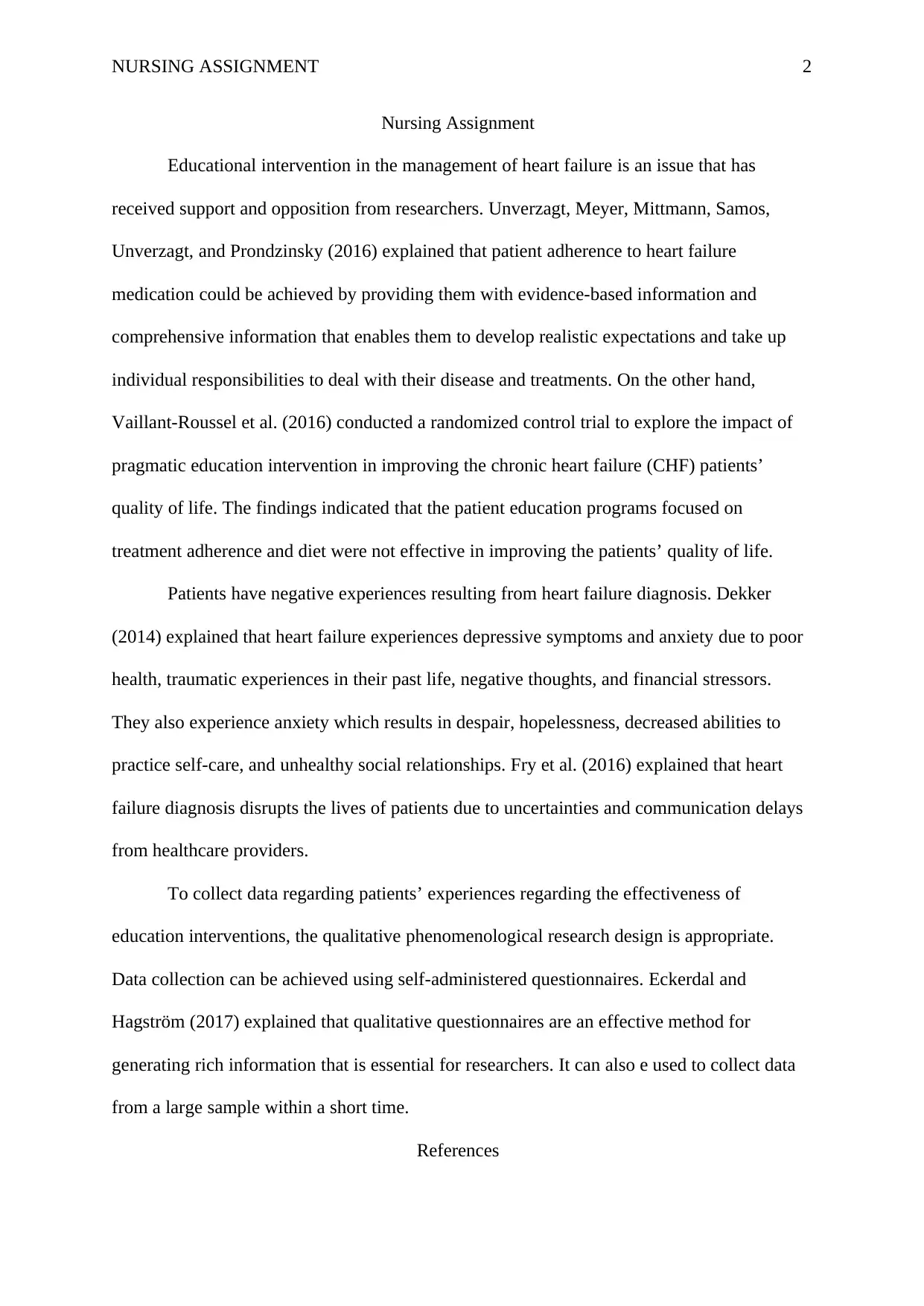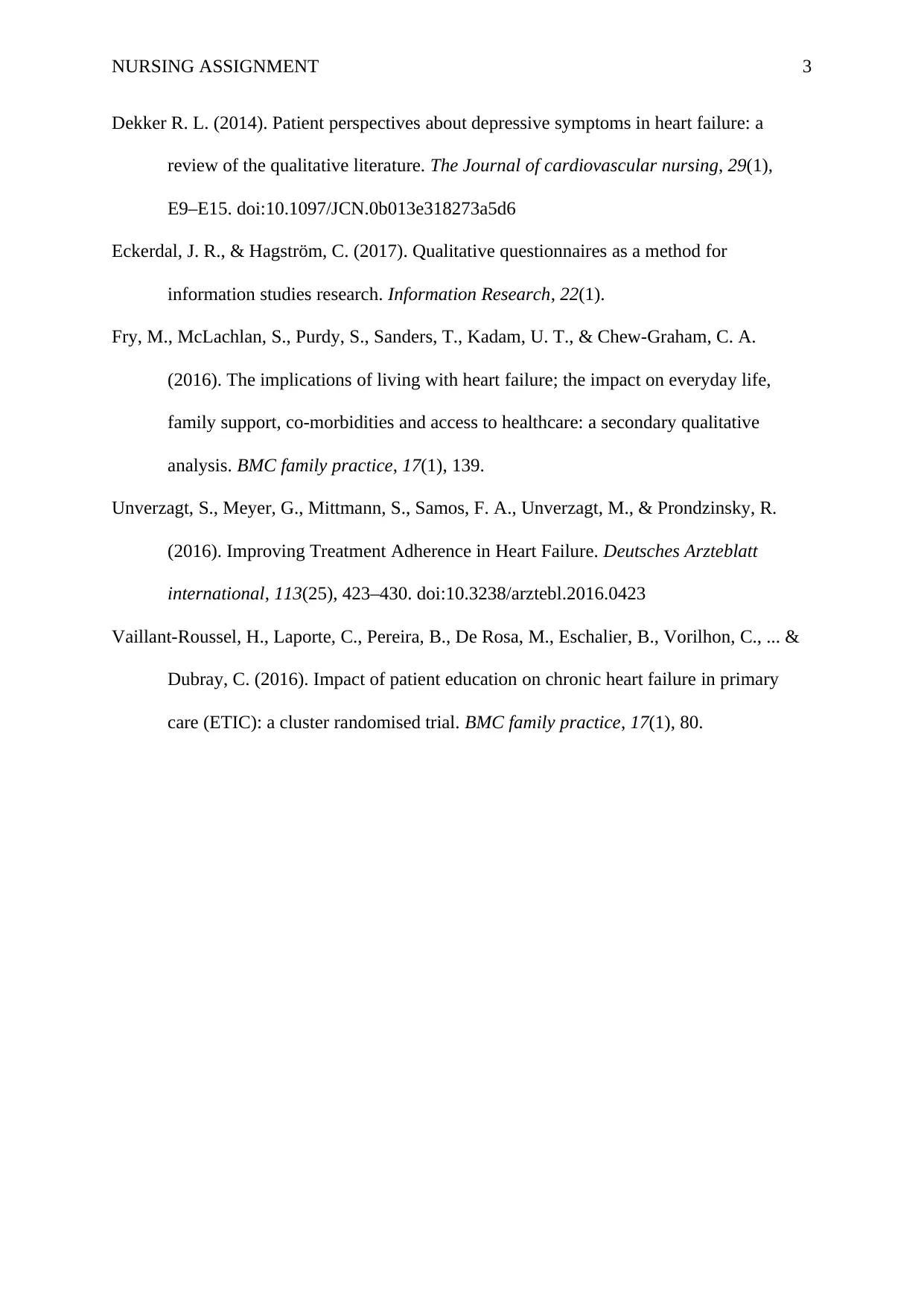Nursing Assignment: Exploring Heart Failure and Patient Education
VerifiedAdded on 2022/10/10
|3
|572
|12
Report
AI Summary
This nursing assignment explores the complexities of heart failure management and patient education. It examines the effectiveness of educational interventions, patient experiences with depressive symptoms and anxiety, and the impact of heart failure on daily life. The report discusses relevant research, including studies on treatment adherence and the use of qualitative research methods, such as questionnaires, to gather data on patient perspectives. The assignment also highlights the importance of understanding the challenges faced by patients and the role of healthcare providers in improving their quality of life. It also references several research papers by Unverzagt, Dekker, Fry and Vaillant-Roussel, providing a comprehensive overview of the topic.
1 out of 3










![[object Object]](/_next/static/media/star-bottom.7253800d.svg)